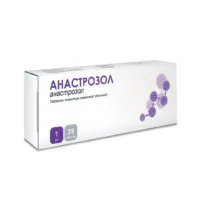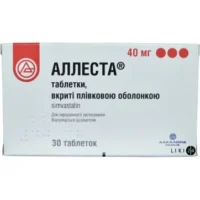Description
Letrozol-TEVA Coated Tablets 2.5 mg. №30
Ingredients:
- Each coated tablet contains 2.5 mg of Letrozole.
Dosage:
- The recommended dosage is one 2.5 mg tablet daily, or as directed by a healthcare professional.
Indications:
- Letrozol-TEVA is indicated for the treatment of hormone receptor-positive early breast cancer in postmenopausal women.
Contraindications:
- Do not use Letrozol-TEVA if you are pregnant, breastfeeding, or allergic to Letrozole.
Directions:
- Swallow the tablet whole with a glass of water, with or without food, at the same time each day.
Scientific Evidence:
Letrozole, the active ingredient in Letrozol-TEVA, is an aromatase inhibitor that works by reducing the production of estrogen in the body. This mechanism of action has been shown to be effective in the treatment of hormone receptor-positive breast cancer. Clinical trials have demonstrated the superior efficacy of Letrozole over tamoxifen in improving disease-free survival and reducing the risk of cancer recurrence.
Additional Information:
- It is important to follow the prescribed dosage and schedule when taking Letrozol-TEVA to achieve optimal treatment outcomes.
- Letrozol-TEVA may cause side effects such as hot flashes, fatigue, and joint pain. If you experience any severe or persistent side effects, seek medical attention immediately.
- Research studies have highlighted the benefits of Letrozole in improving overall survival rates and quality of life in postmenopausal women with hormone receptor-positive breast cancer. The drug’s favorable safety profile and efficacy make it a valuable option in adjuvant therapy for breast cancer patients.





